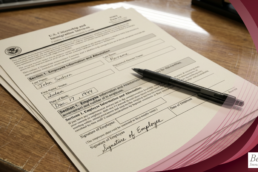The O-1 visa is a nonimmigrant visa. It is for individuals who possess extraordinary ability in the sciences, arts, education, business, or athletics, or who have a demonstrated record of extraordinary achievement in the motion picture or television industry and who have been recognized nationally or internationally for those achievements. To qualify for an O-1 visa, the beneficiary must demonstrate extraordinary ability by sustained national or international acclaim and must be coming temporarily to the United States to continue work in the area of extraordinary ability.
The O nonimmigrant classification is commonly referred to as:
- O-1A: individuals with an extraordinary ability in the sciences, education, business, or athletics (not including the arts, motion pictures or television industry).
Extraordinary ability in the fields of science, education, business or athletics means a level of expertise indicating that the person is one of the small percentage who has risen to the very top of the field of endeavor.
- O-1B: individuals with an extraordinary ability in the arts or extraordinary achievement in motion picture or television industry.
Extraordinary ability in the field of arts means distinction. Distinction means a high level of achievement in the field of the arts evidenced by a degree of skill and recognition substantially above that ordinarily encountered to the extent that a person described as prominent is renowned, leading, or well-known in the field of arts.
To qualify for an O-1 visa in the motion picture or television industry, the beneficiary must demonstrate extraordinary achievement evidenced by a degree of skill and recognition significantly above that ordinarily encountered to the extent the person is recognized as outstanding, notable or leading in the motion picture and/or television field.
- O-2: individuals who will accompany an O-1, artist or athlete, to assist in a specific event or performance. For an O-1A, the O-2’s assistance must be an “integral part” of the O-1A’s activity. For an O-1B, the O-2’s assistance must be “essential” to the completion of the O-1B’s production. The O-2 worker has critical skills and experience with the O-1 that cannot be readily performed by a U.S. worker and which are essential to the successful performance of the O-1.
- O-3: individuals who are the spouse or children of O-1’s and O-2’s
Each classification requires that specific criteria be met in order to qualify.
Ready to have Berardi on your side?
Whether you’re a business looking to hire or a professional hoping to relocate, immigration law can be complicated. But you don’t have to do it alone. Put our experience to work for you.



